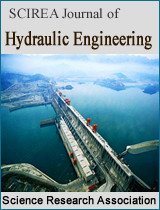SCIREA Journal of Hydraulic Engineering (ISSN: )
SCIREA Journal of Hydraulic Engineering is an international, scientific peer-reviewed open access journal published online by SCIREA.
Open Access free for readers, with article processing charges (APC)paid by authors or their institutions.
High visibility: Indexed in the Google Scholar and other databases.
Rapid publication: manuscripts are peer-reviewed and a first decision provided to authors approximately 20 days after submission; acceptance to publication is undertaken in 5 days.
Recognition of reviewers: reviewers who provide timely, thorough peer-review reports receive vouchers entitling them to a discount on the APC of their next publication in any SCIREA journal, in appreciation of the work done.

